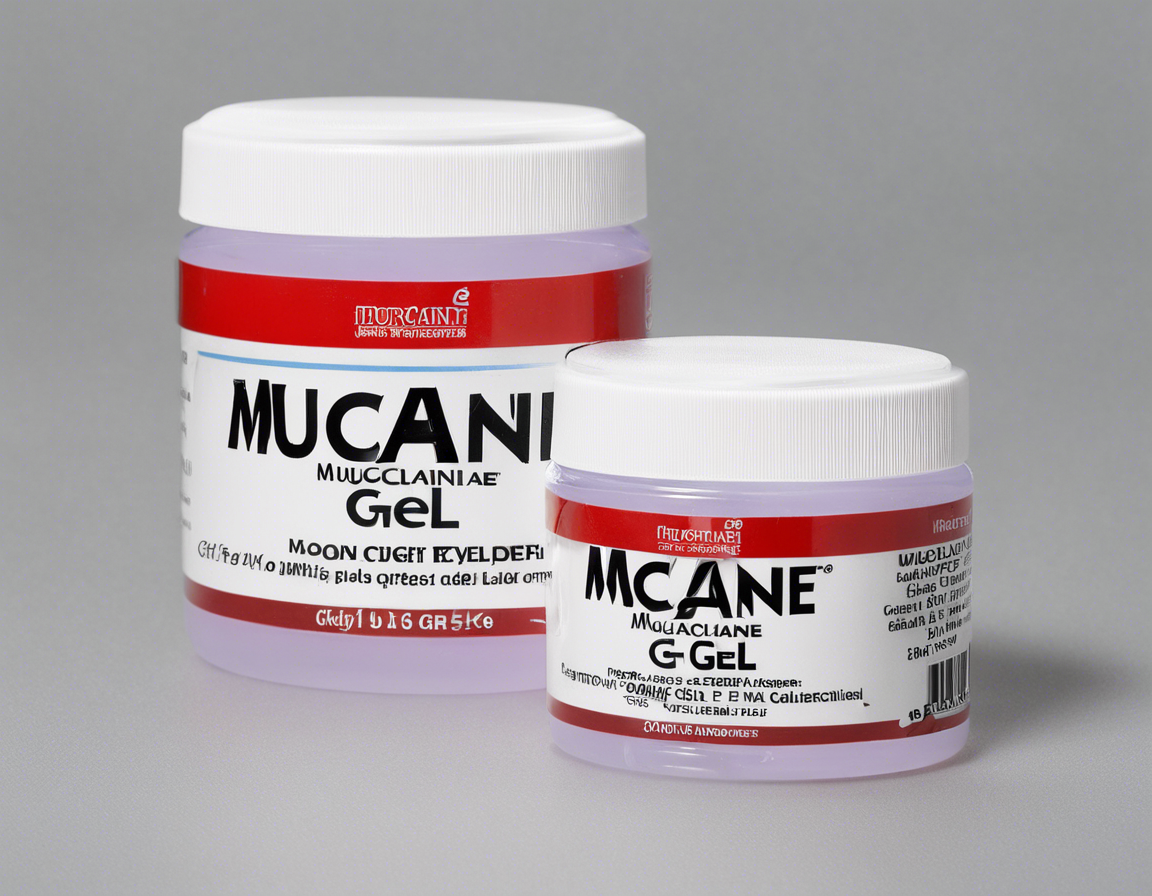Introduction
Mucaine Gel, also known as Mucaine Syrup, is a popular over-the-counter medication used for the treatment of acidity, heartburn, indigestion, and stomach ulcers. It is a combination of two active ingredients, Aluminum Hydroxide and Magnesium Hydroxide, which work together to neutralize excess stomach acid and provide relief from associated symptoms. In this article, we will explore the various uses of Mucaine Gel, its benefits, potential side effects, and considerations for use.
The Mechanism of Action
Mucaine Gel works by neutralizing excess stomach acid. Aluminum Hydroxide and Magnesium Hydroxide are antacids that raise the pH level in the stomach, reducing acidity. Aluminum Hydroxide also forms a protective coating on the stomach lining, providing relief from heartburn and indigestion. Additionally, Magnesium Hydroxide has a laxative effect, aiding in relieving constipation.
Uses of Mucaine Gel
-
Acidity: Mucaine Gel is commonly used to relieve acidity, a condition characterized by burning sensation in the chest and throat due to excess stomach acid.
-
Heartburn: It is effective in alleviating heartburn, a sensation of burning chest pain caused by acid reflux.
-
Indigestion: Mucaine Gel helps in relieving indigestion, which includes symptoms like bloating, belching, and discomfort in the upper abdomen.
-
Stomach Ulcers: It can aid in the treatment of stomach ulcers, helping to reduce pain and discomfort associated with the condition.
-
GERD: Mucaine Gel can also be used as a part of the treatment for Gastroesophageal Reflux Disease (GERD), a chronic condition where stomach acid flows back into the esophagus, causing irritation and inflammation.
Benefits of Mucaine Gel
-
Quick Relief: Mucaine Gel provides rapid relief from symptoms of acidity, heartburn, and indigestion, making it a popular choice for immediate comfort.
-
Minimal Side Effects: Compared to other medications, Mucaine Gel has fewer side effects, particularly when used as directed.
-
Convenience: Being an over-the-counter medication, Mucaine Gel is easily accessible and can be used at home or on-the-go.
-
Combination Therapy: The combination of Aluminum Hydroxide and Magnesium Hydroxide in Mucaine Gel offers dual action in neutralizing acidity and providing relief from associated symptoms.
Potential Side Effects
While generally safe for most individuals, Mucaine Gel may cause side effects in some cases. These may include:
-
Constipation: Due to its magnesium content, prolonged use of Mucaine Gel may lead to constipation in some individuals.
-
Diarrhea: In some cases, an imbalance in the magnesium and aluminum content of Mucaine Gel can lead to diarrhea.
-
Kidney Issues: Individuals with kidney problems should use Mucaine Gel with caution, as it may accumulate in the body and affect kidney function.
-
Allergic Reactions: Some individuals may be allergic to Mucaine Gel components, leading to skin rashes, itching, or difficulty breathing.
Considerations for Use
-
Dosage: Follow the instructions provided on the packaging or as directed by a healthcare professional to ensure the appropriate dosage of Mucaine Gel.
-
Duration of Use: Use Mucaine Gel for the recommended duration. Prolonged use without medical supervision can lead to adverse effects.
-
Interaction with Other Medications: Inform your healthcare provider about any other medications you are taking, as Mucaine Gel may interact with certain drugs.
-
Pregnancy and Lactation: Consult a doctor before using Mucaine Gel during pregnancy or while breastfeeding, as some components may have contraindications.
-
Storage: Store Mucaine Gel in a cool, dry place away from direct sunlight and out of reach of children.
Frequently Asked Questions (FAQs)
- Can I take Mucaine Gel with other medications?
-
It is advisable to consult a healthcare provider before taking Mucaine Gel with other medications, as it may interact with certain drugs.
-
How quickly does Mucaine Gel work?
-
Mucaine Gel usually provides relief within 30 minutes of ingestion, depending on the individual’s condition.
-
Can I take Mucaine Gel daily for acidity?
-
Regular use of Mucaine Gel for acidity should be done under medical supervision to avoid any adverse effects.
-
Is Mucaine Gel safe for children?
-
It is recommended to consult a pediatrician before giving Mucaine Gel to children, as the dosage may vary based on age and weight.
-
Can Mucaine Gel be used long-term for stomach ulcers?
-
Long-term use of Mucaine Gel for stomach ulcers should be done under the guidance of a healthcare provider to monitor any potential complications.
-
What should I do if I experience side effects from Mucaine Gel?
-
If you experience any adverse reactions after taking Mucaine Gel, stop using it immediately and seek medical attention.
-
Is it safe to drive or operate machinery after taking Mucaine Gel?
-
Mucaine Gel is not known to cause drowsiness or impair motor functions; however, individual reactions may vary, so caution is advised.
-
Can I use Mucaine Gel for bloating and gas relief?
- While Mucaine Gel may help alleviate bloating and gas associated with acidity, it is not specifically indicated for this purpose.
Conclusion
Mucaine Gel is a versatile medication that provides relief from various digestive issues such as acidity, heartburn, indigestion, and stomach ulcers. By understanding its uses, benefits, potential side effects, and considerations for use, individuals can make informed decisions regarding its suitability for their condition. As with any medication, it is important to use Mucaine Gel responsibly and seek medical advice when necessary for optimal results and safety.
